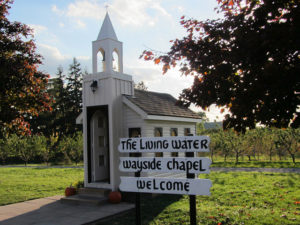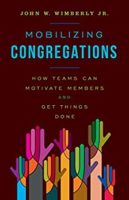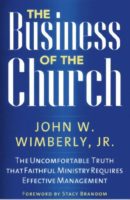
We live in a society that assumes larger is better. But as Isaiah wrote, “My thoughts are not your thoughts, neither are your ways my ways, declares the Lord.” (55:8) Therefore, it shouldn’t be surprising that Jesus challenged the assumption that larger is better: “Blessed are the meek, for they shall inherit the earth.” Jesus’ words point not only to a theological truth, but also to a scientific fact.
By making evolution the motor driving the creation, God planted a revelatory message in the heart of history: What ‘is’ is not what will be. Nothing is permanent. Everything is going to change. Change with it, or disappear. Those who master change survive. Those who do not will disappear.
The meek survive
This year, I have spent a lot of time listening to and working with leaders of small, sometimes tiny congregations in Nebraska, Kansas, Colorado, Wyoming. Idaho and Montana. It has been an inspiration. These folks love their congregations in ways that cause them to make enormous personal sacrifices to ensure the continued presence of these faith communities on the plains and in the mountains and buttes of the West.
It would be easy for denominational leaders to write off these little communities. After all, their numbers tend to decline year after year. The decline isn’t necessarily rooted in anything they are doing wrong. It is usually rooted in the decline of population in many of the small towns where these congregations are located. Despite difficult demographic changes, these “meek” congregations survive because they have mastered what matters in evolution.
As any biologist can tell us, it isn’t the strong who survive in evolution. The adaptable, malleable and resilient survive. We remain fascinated by huge, terrifying dinosaurs that once roamed the plains of earth. What we forget is that they didn’t last long. Several types of mammals as well as various reptiles lasted far longer on earth; some to this day. The fossilized remains of one such rat-like mammal were found just two years ago in New Mexico.
The strength and size of dinosaurs were their downfall; making them inflexible and inelastic when a large asteroid crashed into earth, creating an intensely hot environment. In contrast, a small number of mammals and many plant forms were able to survive because of their adaptability in a suddenly hostile environment. The meek survive (literally inherit the earth) because they don’t have the luxury of dominating. Every day, they need a strategy for survival and then must implement it effectively and efficiently.
Strength in (small) numbers
Why should denominations waste time developing strategies to support and resource these small congregations? Why not let them just die a natural death? My answer: I’m not sure they’re going to die. I’d bet the megachurches (today’s ecclesiastical version of those huge dinosaurs) will die long before these little survivors do. Their large size will be their downfall. But the small communities of faithful women and men know the tricks of evolution. They adapt, adjust and acclimate to the unexpected and expected.
Small congregations have taught me a great deal about what makes a strong congregation:
- They have tenacious lay leadership. The leadership can be as small as one person. But the lay leaders refuse to accept the idea that their ministry will end. To the frustration of some denominational leaders, closure is not an option.
- They have visionary leadership. While many mid-size and large churches flounder when it comes to a sense of purpose, most small churches are quite clear about their purpose. They know God wants them in their communities serving, worshipping, and keeping hope alive. But, first and foremost, their vision is to survive. Some mock such a vision as inadequate. Mock it at your own risk. It is a powerful, powerful driver of human behavior. The will to survive marks those who move on in history.
- They have resourceful leadership. With financial and human resources that sometimes seem ridiculously tiny, small congregations manage to make a way where there appears to be no way. How long can they continue with such limited resources? Who knows? But many predicted they would die by now. I wouldn’t bet against them!
In this season of joy and gratitude, I give thanks for the thousands upon thousands of small congregations across the United States that will gather this month for Christmas and Chanukah celebrations. They won’t have massed choirs or packed pews. They will have themselves and their God. It may not seem like much to some. But to the members of these small communities, it is everything.
John Wimberly is an experienced pastor and consultant. As a consultant, he has worked with congregations and judicatories on strategic planning, staff designs for the 21st century, and congregational growth as well as financial and administrative management. He has MBA, MDiv, and PhD (theology) degrees. His books focus on effective management and leadership. John believes congregations can have a bright future!



